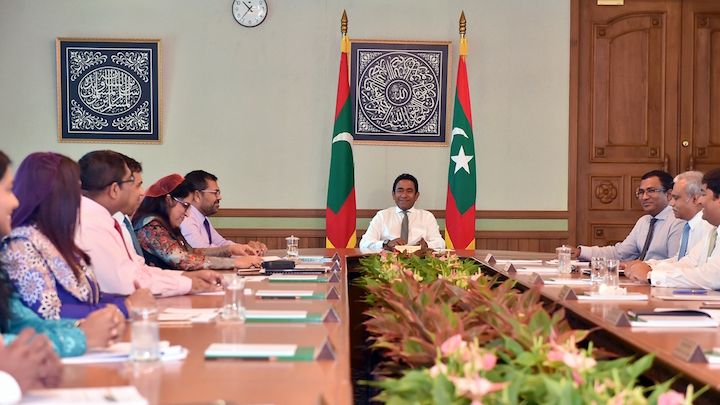President restricts powers of Fuvahmulah city council
After deliberations with the cabinet, President Abdulla Yameen decided Wednesday that the newly-elected Fuvahmulah city council will have the same powers and responsibilities as the Malé and Addu city councils.

28 May 2017, 09:00
After deliberations with the cabinet, President Abdulla Yameen decided Thursday that the newly-elected Fuvahmulah city council will have the same restricted powers and responsibilities as the Malé and Addu city councils.
“The president made this decision in order to provide quality services to citizens and to give equal and uniform authorities to all three cities,” the president’s office said.
The move comes after the main opposition Maldivian Democratic Party swept the three city councils in the May 6 municipal elections. The MDP won 12 out of 13 seats on the Malé city council, all seven seats on the Addu City council and two out of three seats on the Fuvahmulah city council.
The opposition-dominated city councils were gradually stripped of their authority and staff after Yameen assumed office in November 2013.
Become a member
Get full access to our archive and personalise your experience.
Already a member?
Discussion
No comments yet. Be the first to share your thoughts!
No comments yet. Be the first to join the conversation!
Join the Conversation
Sign in to share your thoughts under an alias and take part in the discussion. Independent journalism thrives on open, respectful debate — your voice matters.




